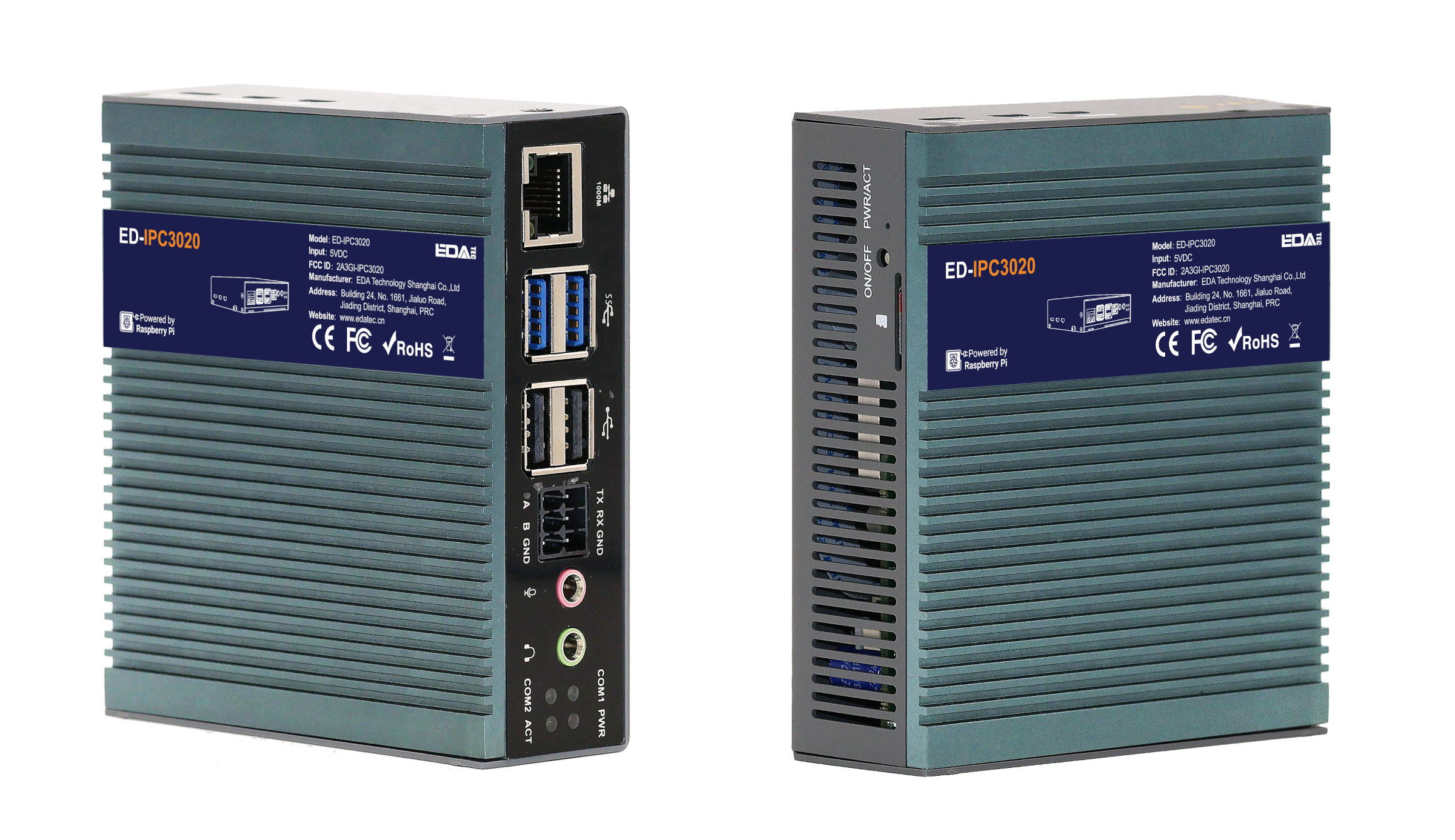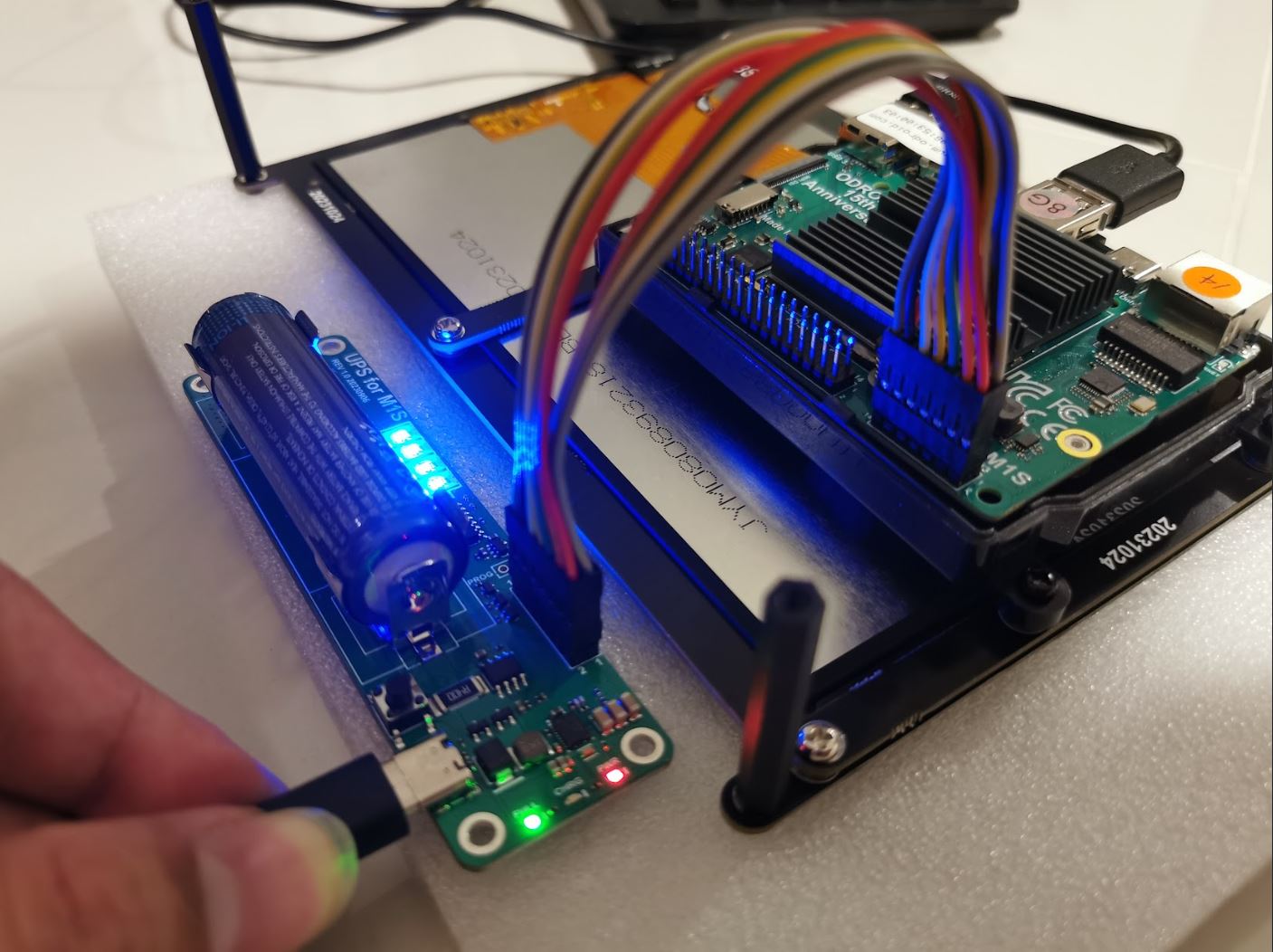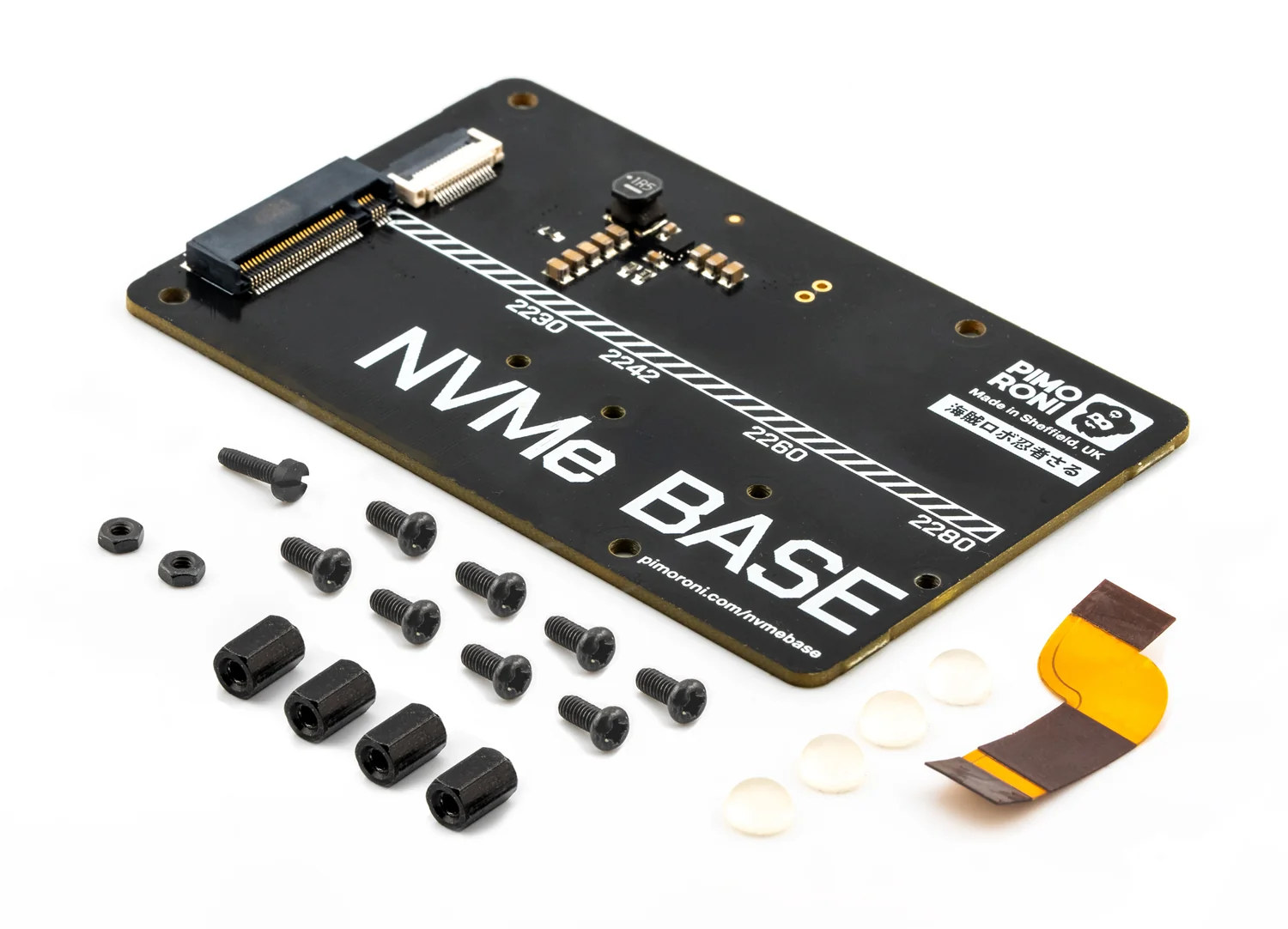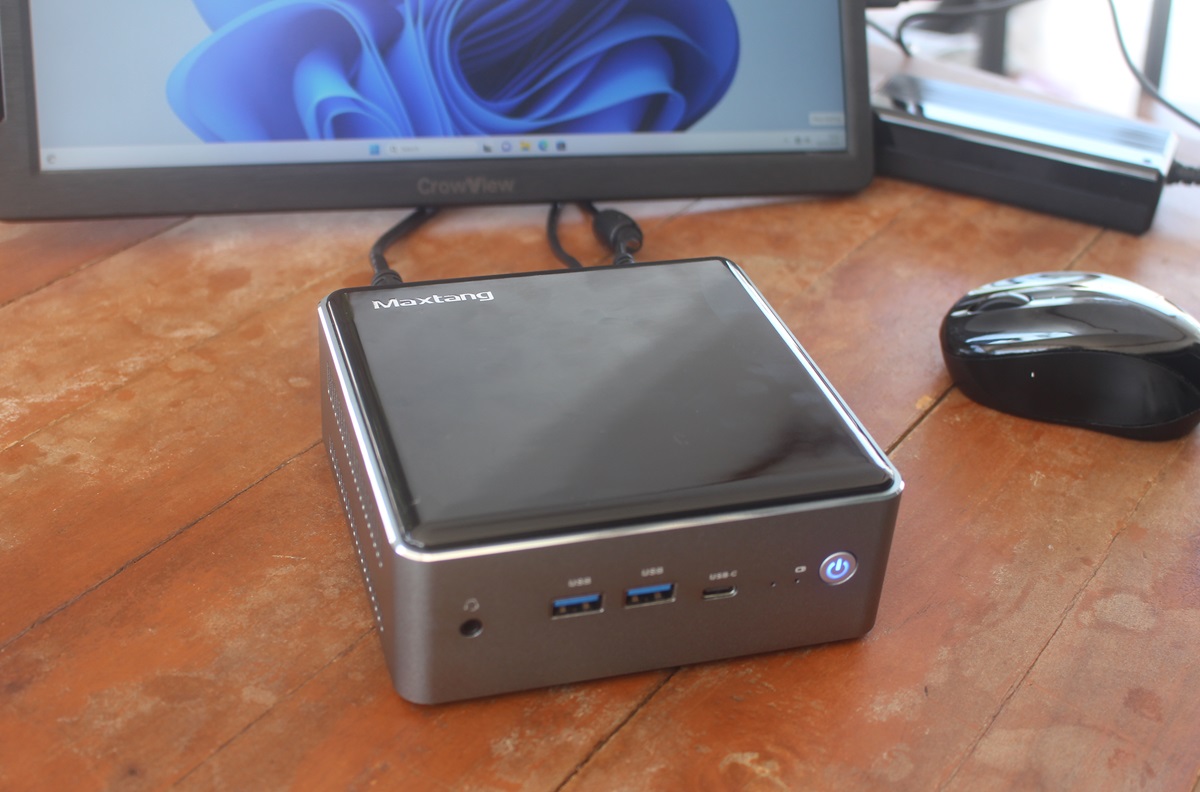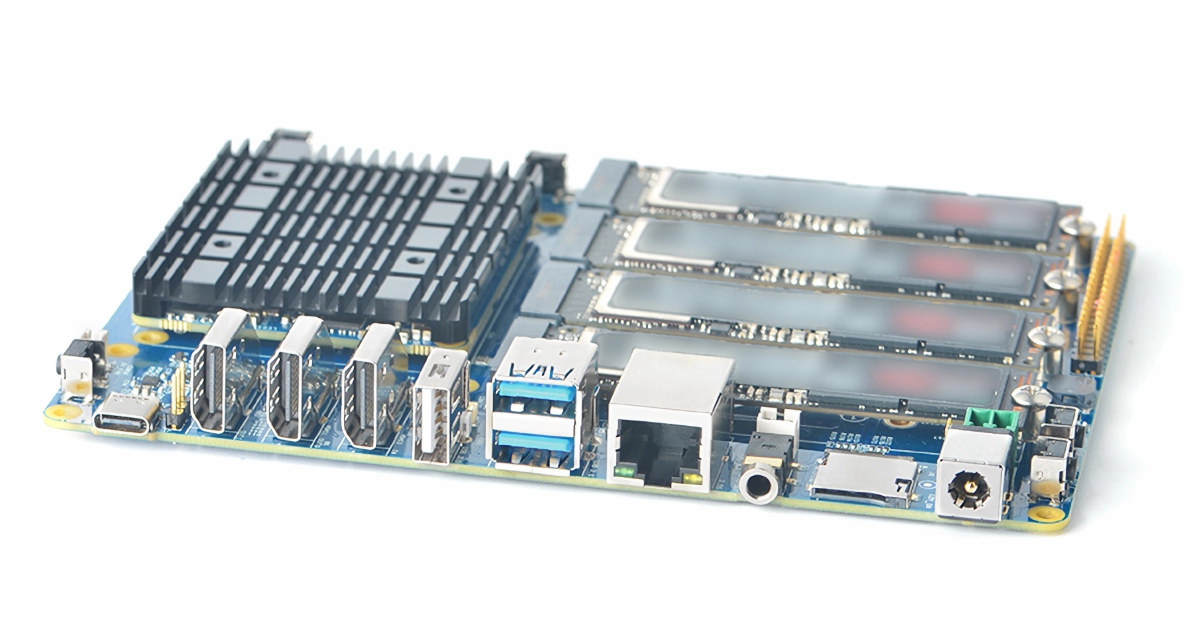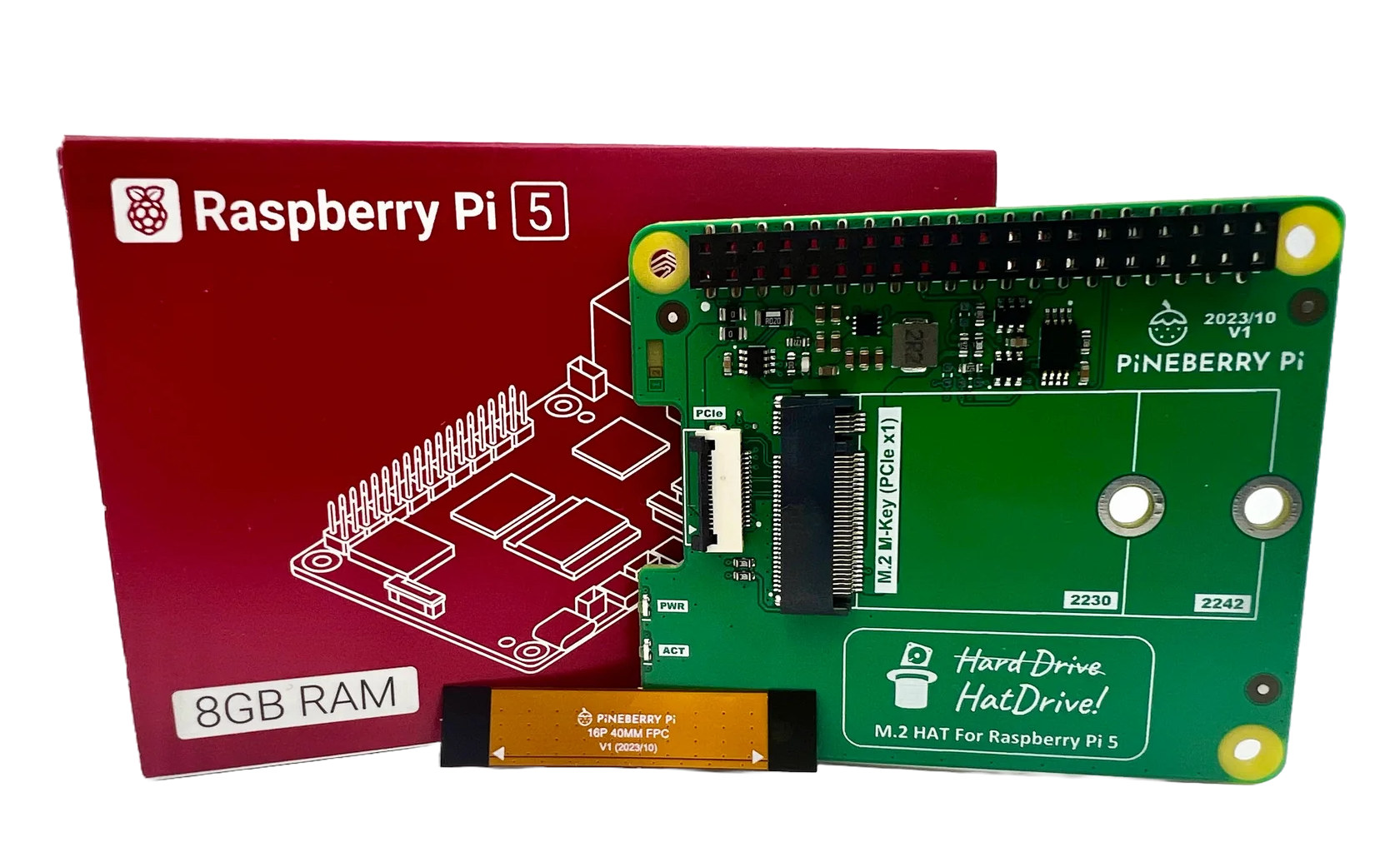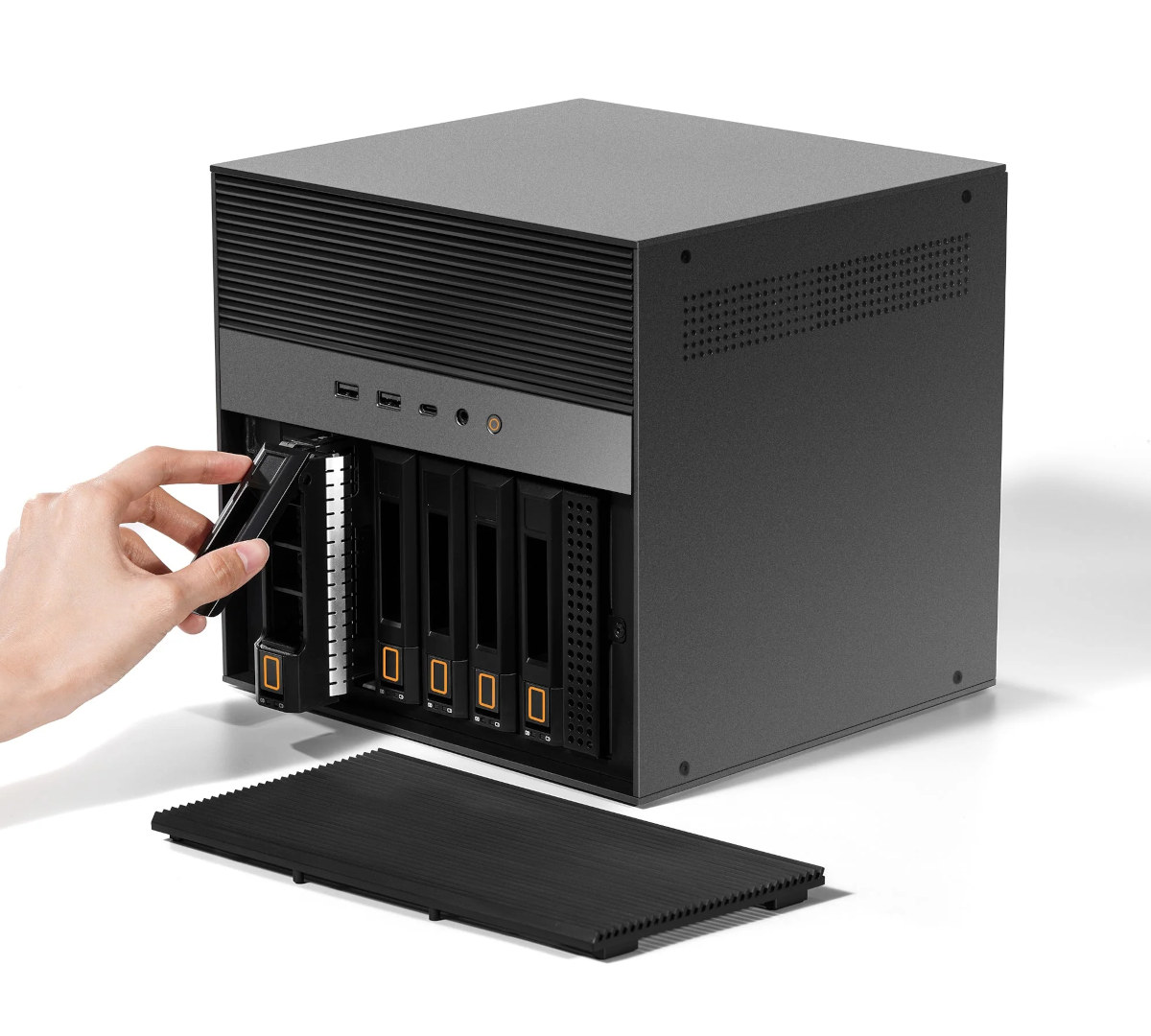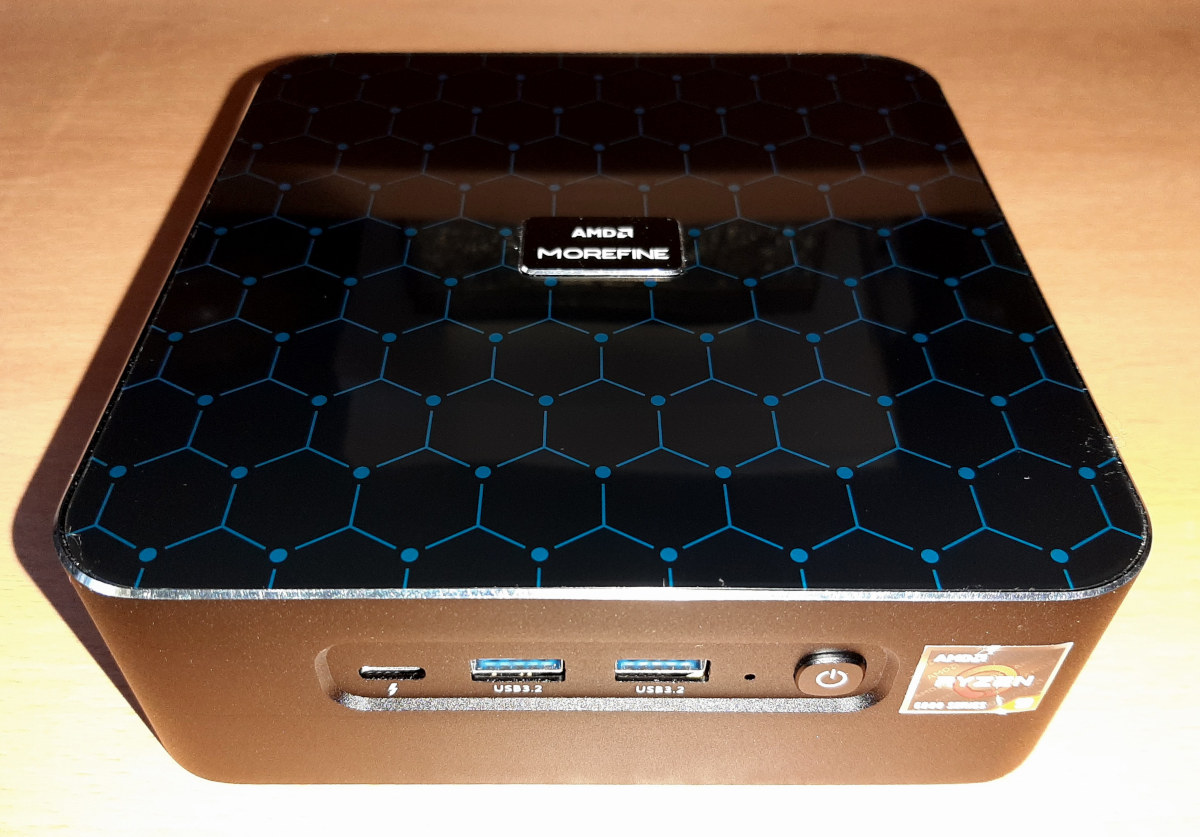EDATEC ED-IPC3020 is a fanless industrial computer based on the Raspberry Pi 5 SBC with support for an M.2 NVMe SSD up to 2260 in size, RS232 and RS485 serial ports, and stereo audio input and output jacks. The Raspberry Pi 5 single board computer could already support an M.2 NVMe SSD thanks to add-on boards such as the PineBerry Pi HatDrive and Pimoroni NVMe Base, but with the ED-IPC3020 we have a complete Raspberry Pi 5-powered computer with M.2 NVMe storage. EDATEC ED-IPC3020 specifications: SBC – Raspberry Pi 5 Model B SoC – Broadcom BCM2712 quad-core Arm Cortex-A76 processor clocked up to 2.4 GHz, VideoCore VI GPU, 4Kp60 H.265 decoder Memory – 4GB and 8GB LPDDR4X-4267 SDRAM are optional Storage – MicroSD card slot for the OS Video Output – 2x micro HDMI ports up to 4Kp60 Networking Gigabit Ethernet RJ45 port with optional PoE support Dual-band 802.11ac Wi-Fi […]
ODROID-M1S review – Part 1: Ubuntu 20.04, Vu8S touchscreen display, UPS Kit, and WiFi Module 5BK
Hardkernel ODROID-M1S single board board was recently launched to celebrate the company’s 15th anniversary. While the ODROID-M1 board was introduced with the Rockchip RK3568 SoC last year, the new ODROID-M1S board is smaller and cheaper starting at just $49 and comes with a Rockchip RK3566 SoC. Hardkernel sent us a sample of the ODROID-M1S board for review with 8GB of memory and 64GB of storage as well as accessories. Let’s unpack the box before trying it out with Ubuntu 20.04 Desktop and testing each accessory. ODROID-M1S unboxing with ODROID-Vu8S display, UPS kit, and WiFi dongle The review package we received from Hardkernel included the ORDROID-M1S SBC in its plastic enclosure, the VU8S 8-inch touchscreen display, a UPS board, and a dual-band WiFi 5 USB dongle. The UPS module comes without a battery, so we had to find an 18650 battery to use it. As we’ll see further below, the UPS […]
$14 Pimoroni NVMe Base adds an M.2 PCIe socket underneath the Raspberry Pi 5 SBC
Pimonori has started to take pre-orders for the NVMe BASE add-on board that adds an M.2 PCIe socket underneath the Raspberry Pi 5 SBC with support for M.2 NVMe SSDs and M.2 AI accelerators with 2230, 2242, 2260, or 2280 sizes. It’s not the first M.2 expansion board for the Raspberry Pi as the PineBerry Pi HatDrive TM1 and BM1 add-on boards launched last month can also do that either on top of on the bottom of the Raspberry Pi, but the NVMe BASE is quite cheaper at just 13.50 GBP inc. VAT or $14.29 ex. VAT at the time of writing. NVMe Base key features and specifications: NVMe Base PCB M.2 M-key slot Holes for 2230, 2242, 2260, and 2280 sized M.2 modules Raspberry Pi FFC PCIe connector ‘PCIe Pipe’ Flat Flex Cable M2 bolt and 2x nuts for SSD mounting 4x 7mm M2.5 standoffs for base mounting 8x […]
Maxtang MTN-FP750 (Ryzen 7 7735HS) mini PC review – Part1: Specs, unboxing, teardown, and first boot
Maxtang MTN-FP750, also known as NUC-7735HS-A16, is a mini PC powered by AMD Ryzen 7 7735HS (or Ryzen 5 6600H) CPU with up to 64GB of memory, up to 2TB M.2 NVMe SSD, and ports such as HDMI 2.0, USB4, 2.5GbE, etc… It also optionally supports WiFi 6E and Bluetooth 5.2, takes a 2.5-inch SSD via an FPC connector, and optionally comes with Windows 11 Pro operating system with the company saying the mini PC is ideal for office retail and digital signage. Maxtang sent us an MTN-FP750 mini PC sample for review with an AMD Ryzen 7 7735HS, 32GB DDR5, and a 512GB M.2 SSD preloaded with Windows 11 Pro. Today we will look at the specifications, go through an unboxing, teardown the device to check out the hardware design and boot it up to make sure it works as expected. We will then review Windows 11 Pro and […]
FriendlyELEC CM3588 NAS Kit comes with four M.2 Key-M 2280 PCIe Gen 3 x1 sockets
FriendlyELEC CM3588 NAS Kit is a new Rockchip RK3588 board with four M.2 Key-M sockets each with a PCIe Gen 3 x1 interface and designed to take 2280 NVMe SSDs or other M.2 PCIe modules. Equipped with the CM3588 Core system-on-module, the feature-rich CM3588 NAS SDK board also comes with a 2.5GbE RJ45 connector, two HDMI 2.1 video outputs, one HDMI 2.0 video input, MIPI DSI and CSI connectors, several USB 3.0/3.1 ports, and a 40-pin GPIO header for expansion. FriendlyELEC CM3588 NAS Kit specifications: System-on-Module – CM3588 Core board SoC – Rockchip RK3588 CPU – 4x Cortex‑A76 cores @ up to 2.4 GHz, 4x Cortex‑A55 core @ 1.8 GHz GPU – Arm Mali-G610 MP4 “Odin” GPU Video decoder – 8Kp60 H.265, VP9, AVS2, 8Kp30 H.264 AVC/MVC, 4Kp60 AV1, 1080p60 MPEG-2/-1, VC-1, VP8 Video encoder – 8Kp30 H.265/H.264 video encoder AI accelerator – 6 TOPS NPU System Memory – 4GB, […]
Raspberry Pi 5 gets an M.2 PCIe HAT – Meet PineBerry Pi HatDrive
The Raspberry Pi 5 SBC comes with a PCIe 2.1 x1 interface that has not been overly useful so far since it’s exposed through a non-standard FPC connector. Raspberry Pi Ltd is working on its own HATs to make use of the PCIe connector, but PineBerry Pi may have beaten them to it with the launch of the HatDrive M.2 HAT for Raspberry Pi 5. The HatDrive comes with an M.2 Key-M socket with a PCIe x1 interface and support for 2230 and 2242 modules, so you can install an SSD, an AI accelerator, or another compatible M.2 module. The HAT is connected through a 40mm long 16-pin FPC cable (that supports up to PCIe Gen3) as well as the 40-pin Raspberry Pi GPIO header for the I2C EEPROM required by compliant HATs, plus power supply monitoring and diagnostics, and to let users add another HAT on top if needed. […]
ZimaCube 6+1-bay NAS offers 2.5GbE, PCIe slots, with either Intel Processor N100 or Core i5-1235U SoC (Crowdfunding)
IceWhale Technology, the company behind the line of ZimaBoard x86 SBCs, has now introduced the ZimaCube (Pro) 6+1-bay NAS equipped with either an Intel Processor N100 Alder Lake-N processor or a more powerful Intel Core i5-1235U Alder Lake-P CPU with additional 2.5GbE ports, PCIe expansion slots, and M.2 sockets. Both models support up to six 2.5-inch or 3.5-inch SATA drives, support for M.2 NVMe SSDs, offer 2.5GbE networking, six USB ports, and one or more PCIe expansion with either PCIe Gen3 (Processor N100) or PCIe Gen4 (Core i5-1235U) enabling the addition of a graphics card, high-speed network cards, and more. ZimaCube (Pro) specifications: SoC ZimaCube – Intel Processor N100 quad-core Alder Lake-N processor @ up to 3.4 GHz (Turbo) with 6MB cache, 24EU Intel HD graphics @ up to 750 MHz; TDP: 6W ZimaCube Pro – Intel Core i5-1235U 10-core/12-thread Alder Lake U-Series processor with 2x Performance cores @ 1.3/4.4GHz, […]
Morefine M600 6900HX review – A Ryzen 9 6900HX mini PC tested with Windows 11 and Ubuntu 23.04
Under review today is Morefine M600 6900HX mini PC which is a generational update to the previously released S500+ (5900HX or 5700U) although it should be noted that Morefine will soon be releasing a newer version of the M600 with either a Ryzen 7 7840HS or Ryzen 9 7940HS. The current M600 (6900HX) brings both processor and iGPU improvements over the S500+ together with a couple of port upgrades and the welcome introduction of USB4, DDR5, PCIe Gen 4.0, and an additional M.2 storage slot. This review will look at Windows 11 performance together with a quick look at running Ubuntu 23.04 and experiences from using the new features. Morefine M600 6900HX product specifications The Morefine M600 6900HX specifications are as follows: Product overview Overview of hardware The M600 physically consists of a 149 x 145 x 40 mm (5.87 x 5.71 x 1.57 inches) square metal case with […]


